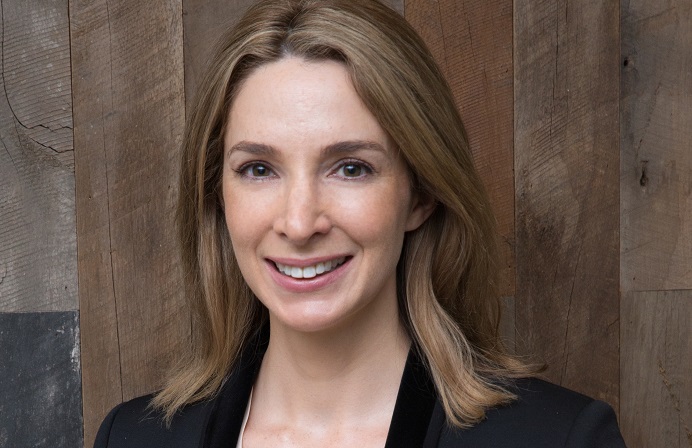
While by far Australia’s biggest life insurer, TAL has a well-earned reputation as a nimble and ever-willing innovator. The life giant has offered up a constant stream of ‘industry firsts’ – from its AI-backed claims quality assurance tool, the Wunderwriter, to breakthrough mental health initiatives (including the life sector’s first dedicated Head of Mental Health), Open APIs, and the adoption of cutting-edge cloud and digital security solutions.
Chief Information & Innovation Officer, Fiona Macgregor, has been at the forefront of many of TAL’s digital initiatives, bringing a wealth of experience and insights from the lightning-paced innovation ecosystem of her native UK.
Macgregor takes us through TAL’s digital roadmap and (never-ending) mission to increase its trust surplus with its customers, realising the partnership dividend, and what the ideal life insurer should look like in five years’ time.
FST Media: Before joining TAL, you served across a number of finserv industry roles in your native UK.
If you could, firstly, walk us through your career journey to Australia. What lessons can you offer from your time within the UK’s digital innovation ecosystem?
Macgregor: I spent the first decade of my career in the UK at the Royal Bank of Scotland (RBS), mainly in innovation-focused roles. In that period, RBS went from being a Scottish high street bank to a global banking giant and then, post-GFC, an embattled brand that needed to fundamentally refocus its purpose and rebuild trust within the communities it existed to serve.
I left RBS to start my own innovation consulting business, working across a range of sectors on growth challenges and innovation opportunities. That was a great experience – lots of context switching, really honing what you’re good at (and not!), and often guiding leadership teams to welcome innovation, rather than getting in the way!
The unexpected opportunity to move to Australia to join TAL was too good to miss. TAL has grown to be Australia’s leading life insurer and I’ve been part of that in three different roles: as General Manager Innovation, helping to establish the first dedicated Innovation team at TAL; then as Chief Customer Officer, focused on customer experience innovation and bringing our brand and purpose to life; and now as the Chief Information and Innovation Officer, driving the tech, cyber, digital delivery and transformation portfolios. It’s a business and team I’m really proud to be a part of.
I look back at my time at RBS and reflect that the post-GFC era was the time when the innovation imperative was clearest.
For me, personally, it reinforced the importance of innovation that is customer-led and aligned to purpose. That may seem obvious, but it is a guiding thought that can easily be lost when businesses adopt the wrong starting point for innovation, getting seduced by the latest tech or novel trends or an idea to ‘monetise’ their customers’ data.
FST Media: Take us through TAL’s digital roadmap over the next 18 months. What future technological capability excites you most within TAL’s digital program?
Macgregor: What excites me are solutions that are genuinely helpful for our customers and partners. Through every interaction we intend to retain and build our customers’ and partners’ confidence by making it easy for them, especially at claims time. That’s the focus of our digital roadmap.
Some people may be surprised to learn that the majority of the claims payments we make are actually in living benefits, to individuals who have experienced serious illness or accidents preventing them from working for a period of time. This means it’s extra important that we get the claims experience right. Our digital roadmap is focused on reducing customers’ effort by making it easier for them to lodge a claim and by speeding up our decisions.
At our core, we are a partnership business.
For our partners – many of them major Australian businesses – we are focused on delivering modern, secure, digitally enabled insurance partnerships. We have been investing heavily in our API (Application Programming Interface) capabilities, to support seamless insurance experiences for our partners’ customers and members; we, in fact, were first to market with a set of open APIs in this space. We are continuing to build that out and we’re excited to see our partners adopting that capability.
FST Media: As keynote speaker at our recent Future of Financial Services, Sydney event, you spoke of the value of engendering consumer trust, which you note has a direct positive correlation on revenue growth for finserv businesses.
What’s the biggest mistake financial services businesses typically make that increases the trust deficit? Further, how is TAL leveraging its digital capability to nurture and increase trust in its services?
Macgregor: Businesses should always remember that trust has to be earned – and every interaction has the potential to build or erode trust. A good challenge is to ask of ourselves: What are we doing to continually earn the trust of our customers? Rachel Botsman’s work at the University of Oxford reminds us that trust is not about technology, it’s about culture.
At TAL, in a digital context, that means we work hard to design experiences that empower customers and help them feel confident and in control, in what can be a complex or unfamiliar area for them. A good, simple example at TAL is Claims Assist, which enables customers to easily upload documents through their phone or laptop to quickly lodge their claim and then track their payments.
Something as simple as confirmations regarding claim progression helps customers feel confident and clear about the process.
We take our corporate digital responsibility seriously, putting digital trust right at the heart of good digital strategy. Treating cyber as a top customer experience requirement – not just for the engineers or risk teams to think about – has been and will continue to be important for us.
FST Media: The emergence of big techs in the payments and general banking space provided a moment of existential dread for many in the financial services sector – though this threat has yet to be fully realised.
What immediate threats (or perhaps exploitable gaps in digital capability) do traditional life insurers currently face, and how can established players remain relevant and meaningful to tomorrow’s customers?
Macgregor: It would be a mistake for anyone in any established industry to think that disruption couldn’t happen to them, and life insurance is no different.
Having good innovation capabilities throughout our business and a strong growth mindset helps us remain relevant. We aim to leverage our scale for the advantage of our customers and partners, whilst also continuing to move fast as a more digital business.
To be successful in business, leaders need to tackle these challenges and constantly educate themselves, stay literate and curious, and listen to and understand the needs and problems of their customers and partners.
We proactively seek opportunities to collaborate at a global and local level to bring diverse thinking and talent together to serve our customers. We are open to collaborating on new partnerships and will continue to work with our parent company Dai-ichi Life, through their Global Innovation Fund.
FST Media: AI has emerged as a hugely transformative tool for insurers, not only in innovating CX, but also in claims expediting and risk assessment space.
How is TAL utilising AI – ethically – to improve its operations and be a better service provider?
Macgregor: We leverage Regulatory Technology to ensure we are constantly improving and evolving our operational capabilities. We use insights from sales calls to review compliance and ensure consistency of service.
TAL’s Wunderwriter tool is a great example of AI and machine learning that was launched to deliver the best outcomes for our customers, enabling the auditing of 100 per cent of cases – that’s compared to an industry norm of 1 – 2 per cent.
Generative AI has really interesting future potential for customer service, both directly and in supporting customer-facing teams.
FST Media: The ability to nurture and retain engineering and IT talent has been a major challenge for Australia’s tech-mature businesses over the last few years. How is TAL building its talent pipeline and creating an innovative and energising space for its tech talent?
Macgregor: Through our insurance policies, TAL protects around 40 per cent of the Australian working population, and last year we paid the claims of more than 39,000 customers and their families who were often going through the most difficult times in their lives due to illness, accident or bereavement. It is purposeful work and that’s very meaningful and motivating for our teams.
We provide insurance products direct-to-consumer and through partnerships with well-known brands and major superannuation funds. These provide a range of energising digital opportunities to pursue, and complex tech and data challenges to tackle.
We want to create great chapters in people’s career stories, and we are constantly on the lookout for great digital and tech talent.
We also support blended ways of working and we’re continually investing in our learning and development programs. Our Tech Academy supports our people in keeping their skills current and relevant. We are also increasingly exploring global opportunities for our people through our parent company in Japan, Dai-ichi Life.
Importantly, when it comes to talent attraction and retention, one of the things we remain very focused on is an inclusive culture and environment. I am particularly proud that our cyber team is gender equal, which was a very deliberate goal.
FST Media: What is one currently emerging digital capability that you believe will fundamentally transform the wider financial services sector for the better?
Macgregor: AI is not exactly an emerging technology, but it is certainly on a path to scale. Using AI ethically and thoughtfully can enrich our careers by making work easier and creating the space and time for us to focus on more creative and interesting work that only humans can do.
There is a real opportunity to use AI to ‘augment’ our people’s knowledge, make it easier for them to help our customers and unlock capacity.
FST Media: Finally, what should the ‘ideal’ life insurer look like in five years’ time?
Macgregor: A great business is a great business in any era – one that has a strong sense of purpose, creates value for its customers, and is able to capture that value to be successful for the long term.
Over time, we have different things at our disposal, whether it be technology or skills, and the ideal business is able to recognise that evolution and take full advantage of it. For me, it’s about using those capabilities in a way that fits the times.
It’s more than just technology. Talent is so important to evolving as a business and so is the capacity for introspection as a leader, to be willing and able to change with the times and have the literacy to attract, motivate and energise your people.
Fiona Macgregor was a featured keynote speaker at the Future of Financial Services, Sydney 2023 conference.





